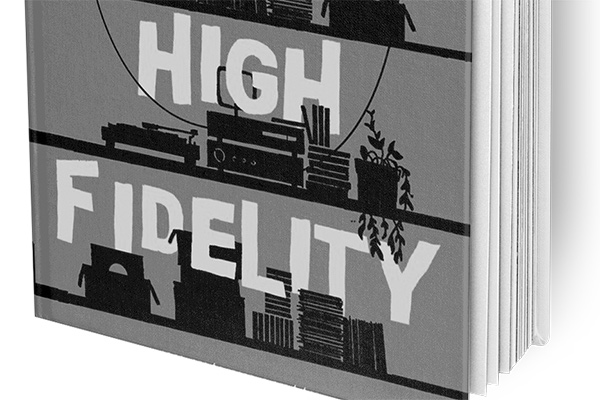High Fidelity
By Nick Hornby
Rob Fleming, the protagonist, could have been on the cast of Friends, if Friends was sadder, less goofy and, for want of a better descriptor, more English. He’s 35 years old and is owner-operator of the far from booming Championship Vinyl. What’s more, his long-term girlfriend, Laura, has just dumped him. Rob’s bumbling and vaguely offensive mates-slash-employees are a source of comedy and insight. Indeed, their casual misogyny (and general pathetic-ness) leads Rob to begin to recognise his own pathologies and start a journey of self-discovery. An affair with the American musician Marie DeSalle kick starts this adventure through all of his ex-girlfriends and his search for “why.” Rob’s perspective on the break-ups can be narcissistic at times but the exes themselves can be a little unfair, too. People aren’t just cads and bitches and neither are Rob and his exes. Rob does begin to show some genuine self-awareness about his contributions to his bad relationships but really struggles to rid himself of his “woe is me” self-victimisation entirely.
While the novel is from a largely male perspective, its female characters are humanely drawn, especially Liz. To me, Liz is the fairy godmother of this tale, who takes the role of “feminist voice of reason” and becomes the mediating bridge between Rob’s experience of his relationship with Laura, and vice versa.
High Fidelity plays with the tropes of the mid-90s bohemian revival, cemented ever so firmly in my mind by the 2000 film version, but against a backdrop of grey, industrialised Britain rather than bright and sunny Chicago. Watching the film before reading the book did gift me with the beautiful image of John Cusack in the role of Rob (Gordon, rather than Fleming, in the film) and highlighted how beautifully cast Jack Black was in the role of Barry (one of Rob’s mates/employees). If I were to choose anyone to represent a cocky, in your face, mid-30s record store employee with a detached and/or deluded fascination with womankind (and probably has bad body odour), it would definitely be him.
In some ways High Fidelity is the novel equivalent of a face only a mother could love. People have to be sympathetic to a particular breed of straight guy to have any chance of caring about the characters at all. The whole project could have been 300 pages of circle jerking, but a genuinely sweet love story is underneath the neo-masculine pity party – a believable, grown man does learn to face his fear of commitment and fight for the woman he loves (though a lot of that fighting involves Rob wrestling with his own thoughts, stuck, until she rescues him and takes him back).
This review may sound a little disparaging, especially of some of its characters, but I’m genuinely fond of them (even if they can be kind of rubbish at times) and the book as a whole. It shows love in its most human form, when everything good has gone and you’re old and kind of a failure – love that is not necessarily dramatic or legendary, but real and bittersweet.



